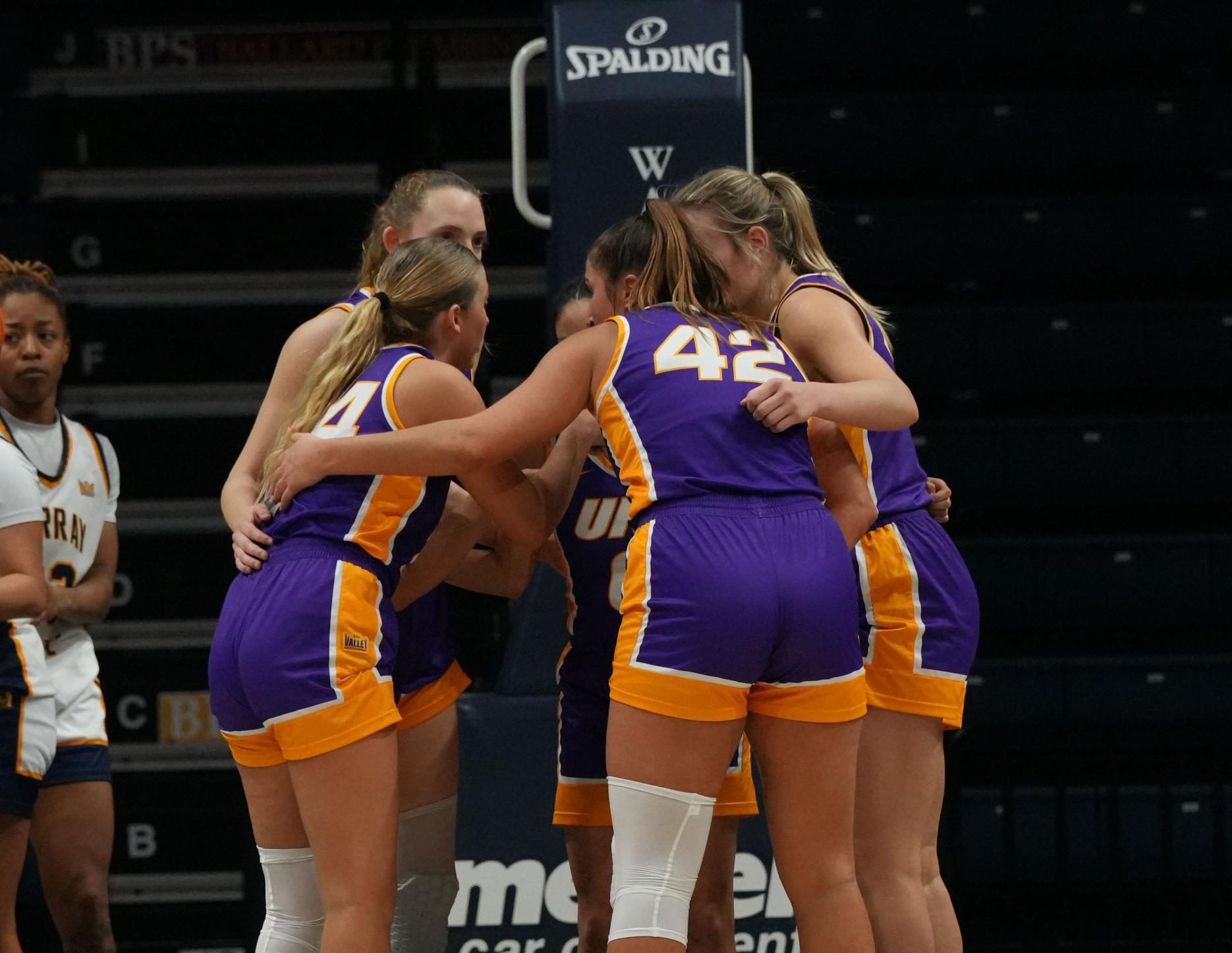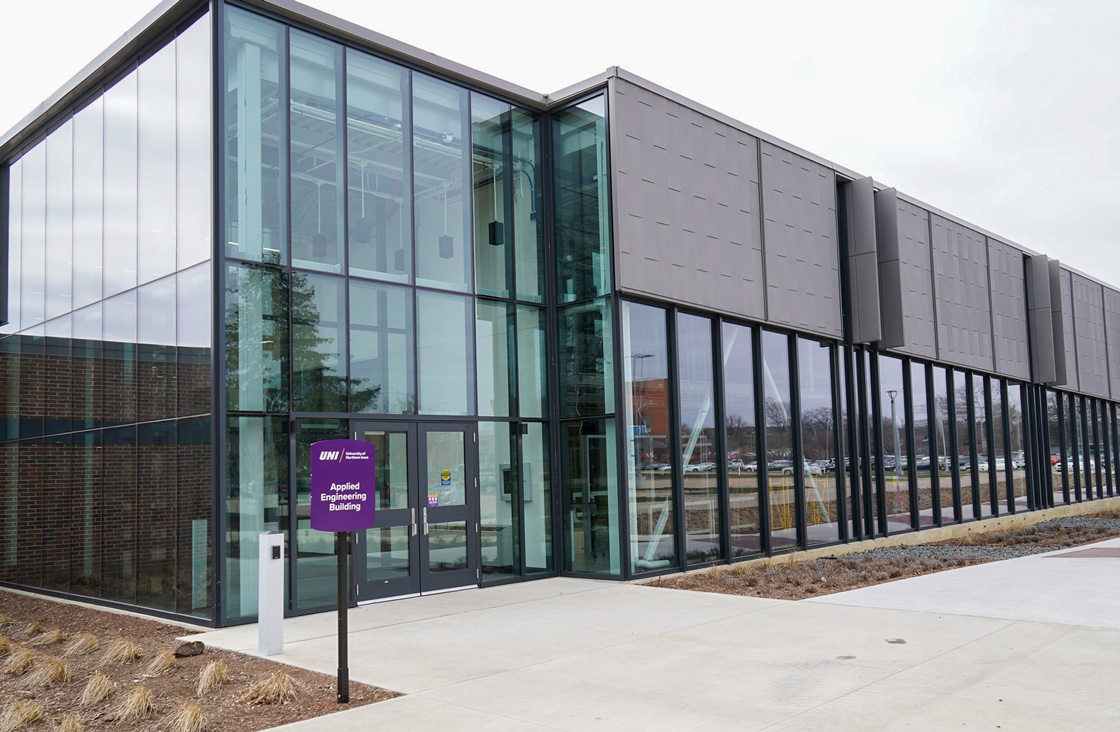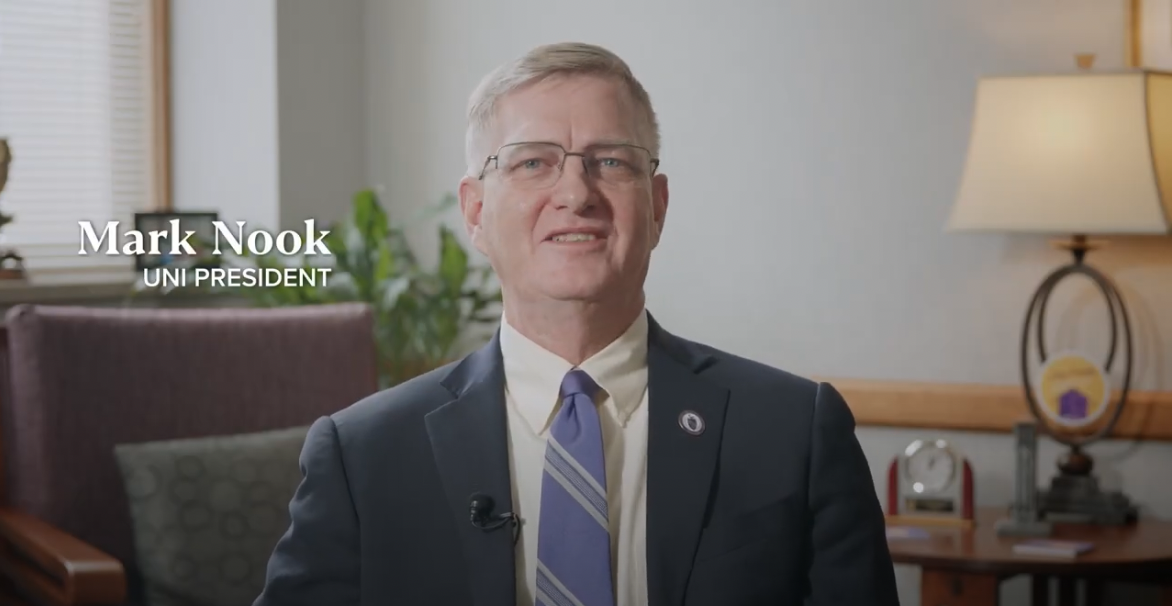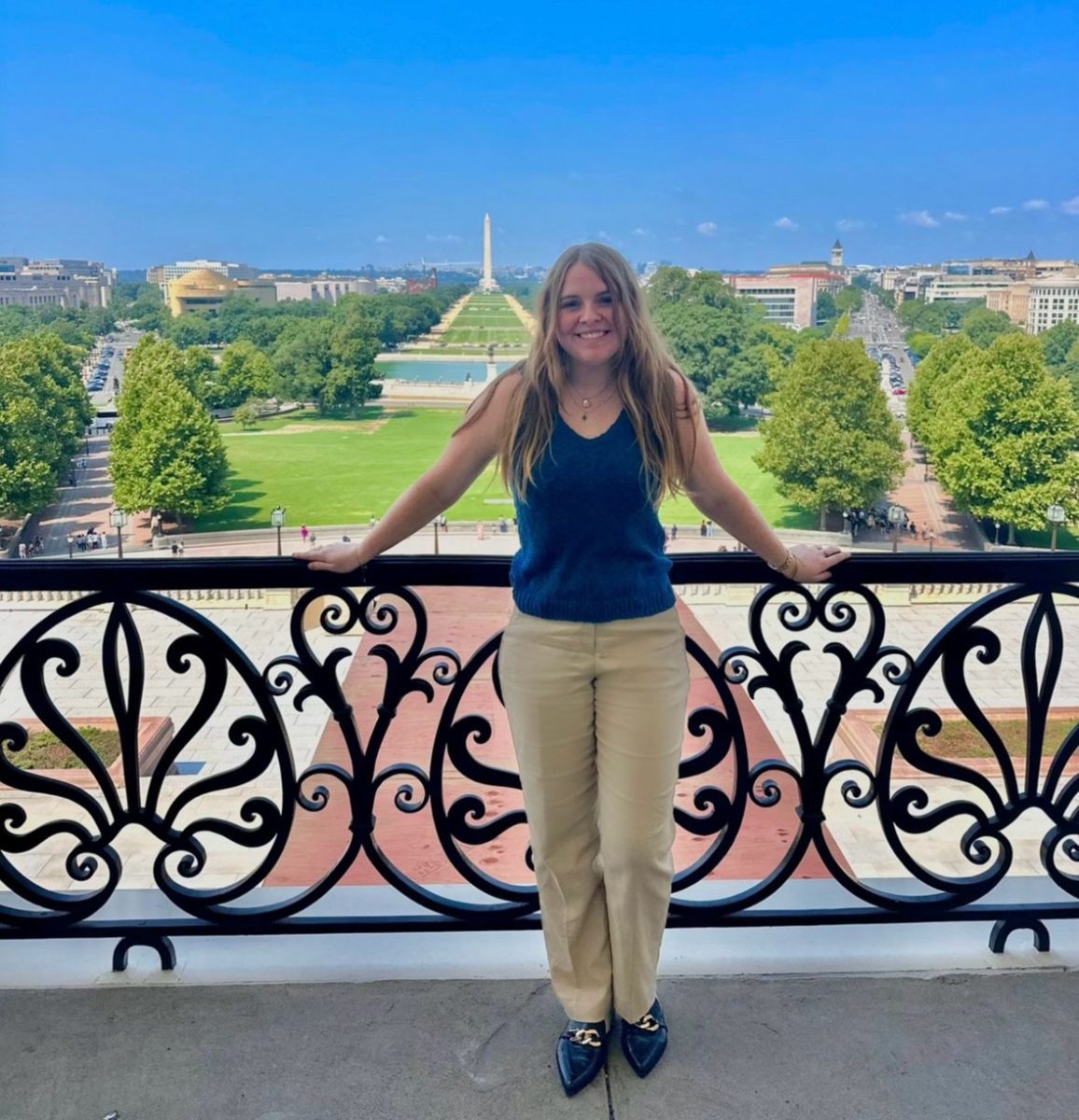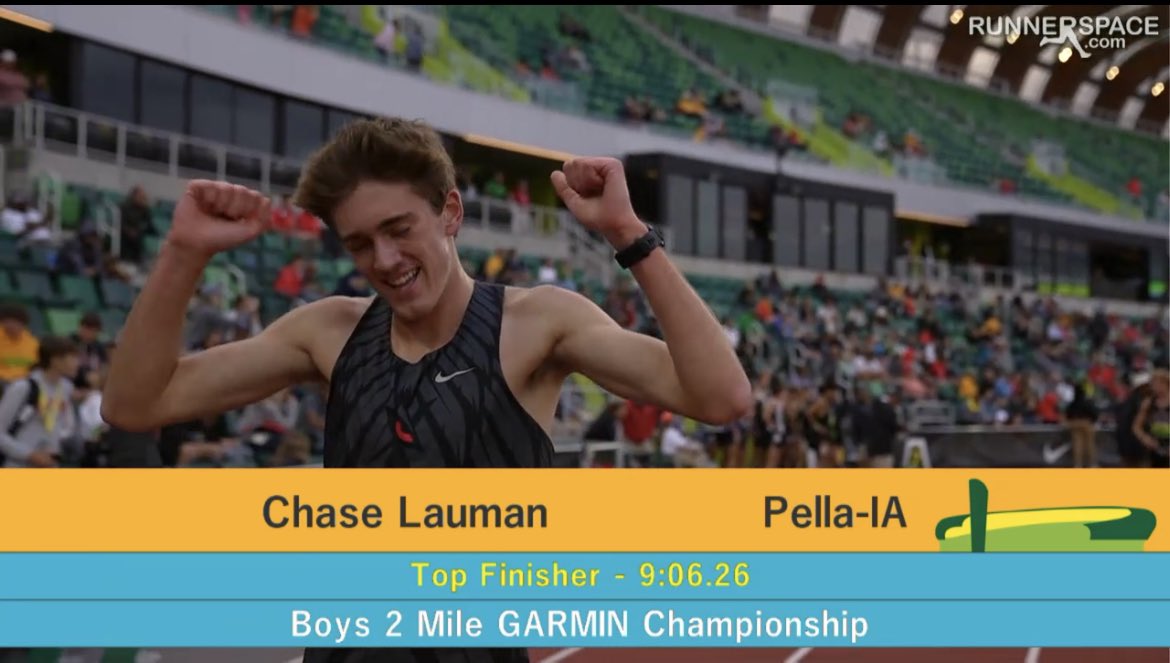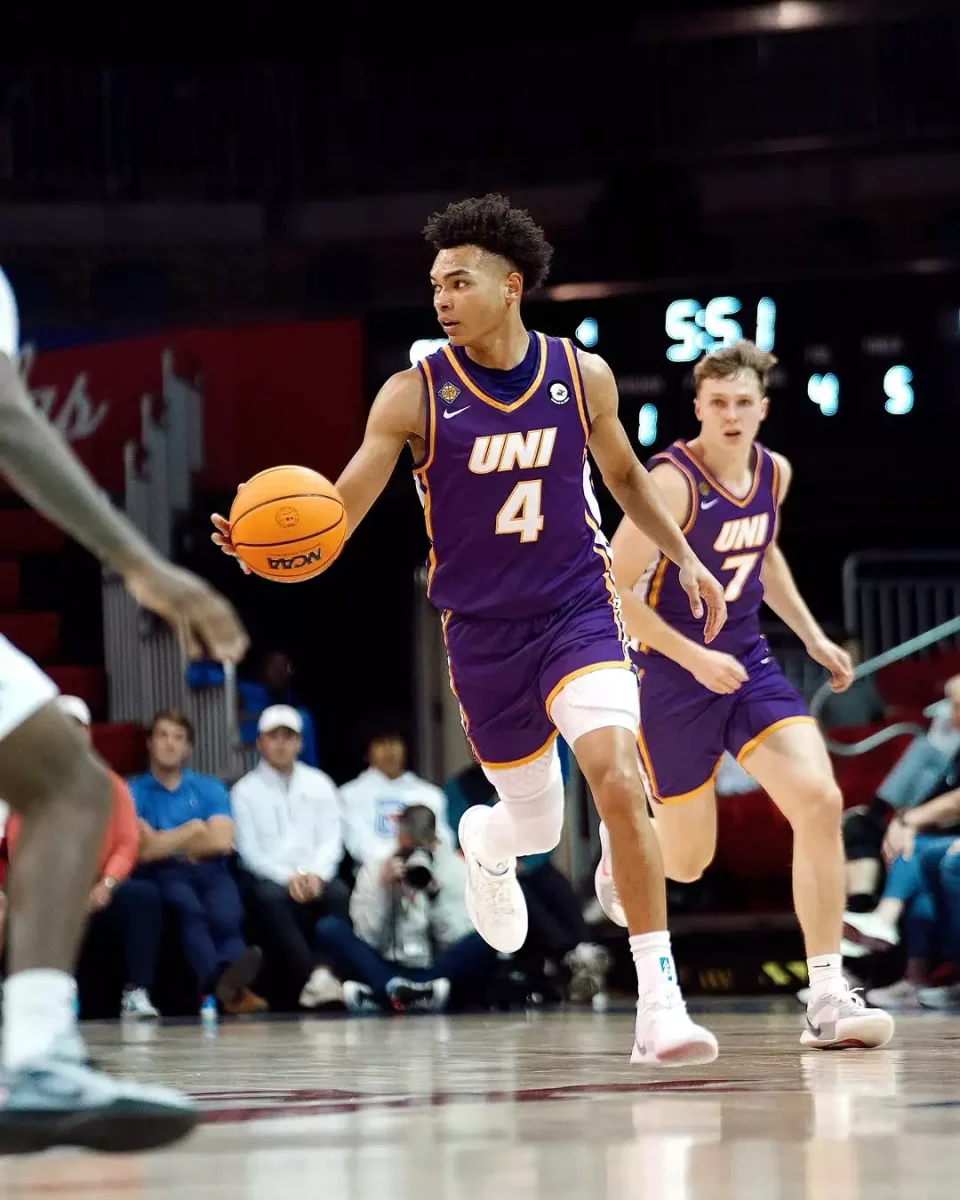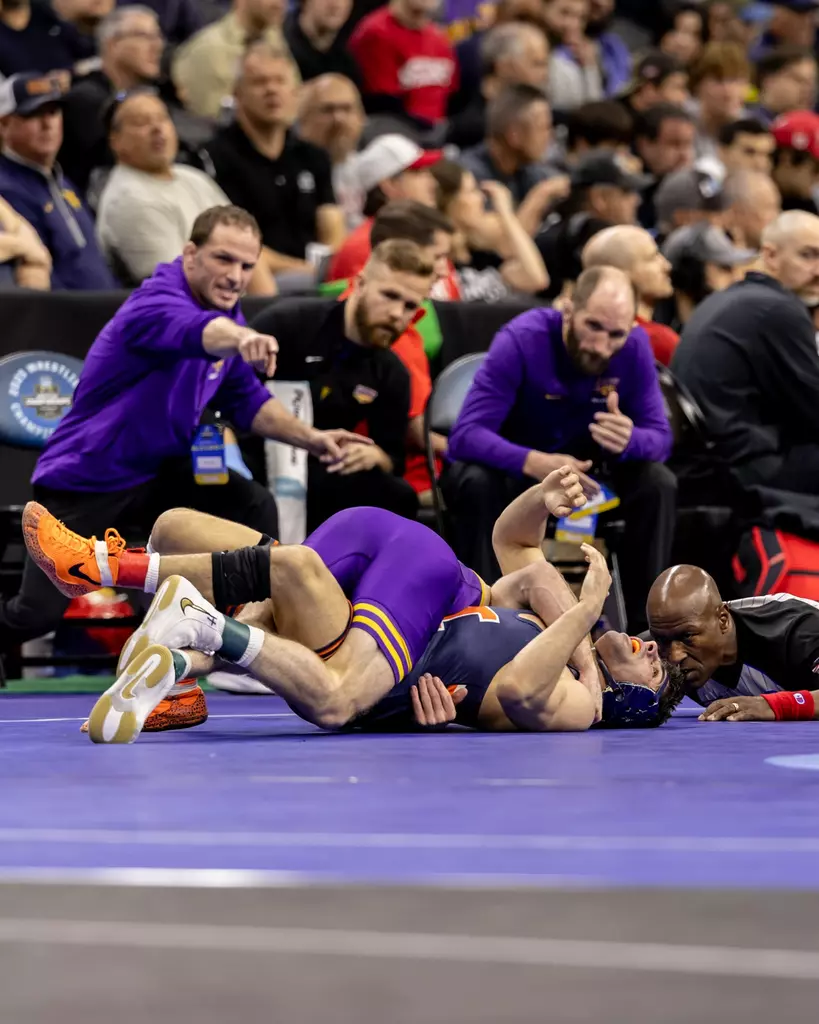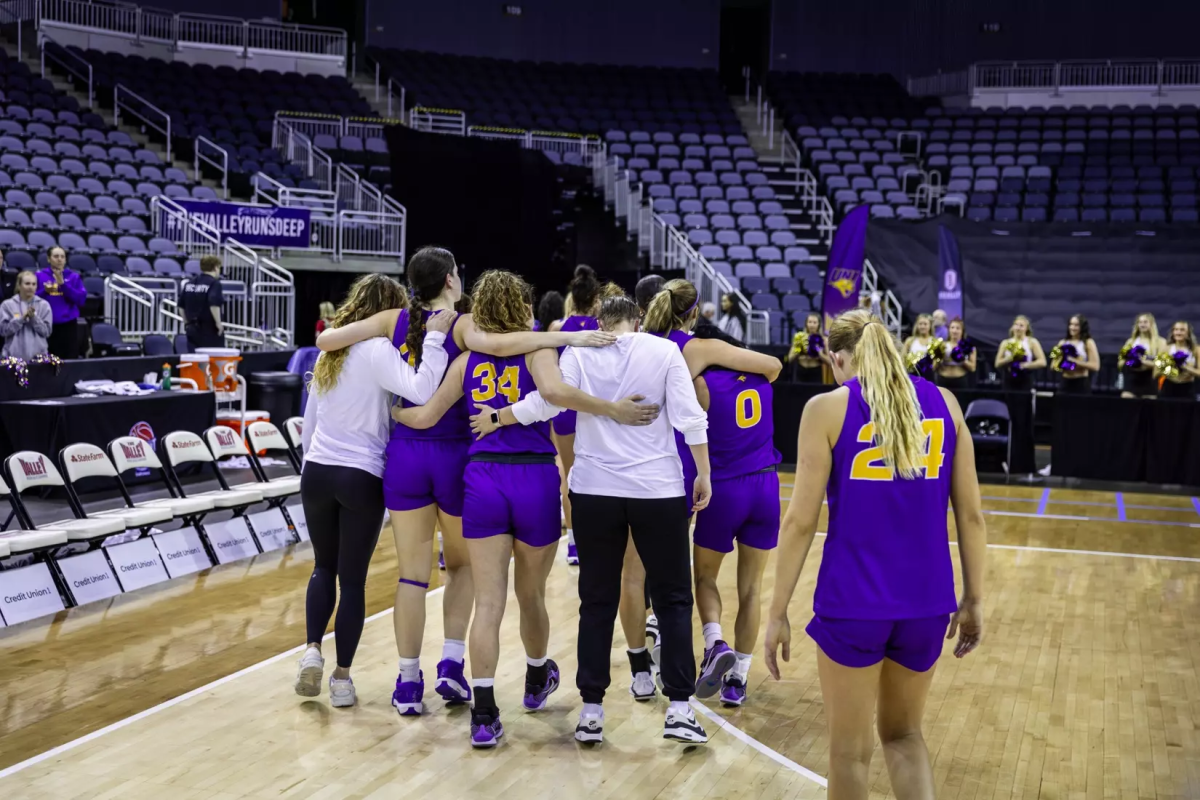Senior Issa Sullivan wears many hats: captain of the UNI women’s tennis team, movement and exercise science major on the pre-physician’s assistant track, member of the Student-Athlete Advisory Committee.
Though “forever grateful” for the many roles she fulfills as a student-athlete, in reflection on her four years at UNI, one word seems to come up: exhausting.
“I think when you do recruiting and you say you want to do a Division 1 sport, you know it’s going to be mentally challenging and physically challenging, but you push yourself to a point that you didn’t ever know you could go to in the past,” she said.
Tennis competes in both the spring and fall, but Sullivan says that it’s really a year-round sport for players looking to get the best results. When she’s in season, she often spends her weekends competing in five to six-hour-long meets and tournaments that can last up to 12 hours. When she’s not in season, she still keeps a strict training regiment.
As she progressed through her college career, Sullivan found that constantly striving to compete on the court and in the classroom can come at a cost.
“I didn’t know if I could do it,” she said. “Some days I woke up at 5 a.m. every morning for practice and I didn’t get home until 10:30 at night from the library, and then you wake up and you do it over and over again.”
Sullivan isn’t alone in her experience. According to the NCAA Student-Athlete Health and Wellness Study conducted between September 2022 and June 2023, 44% of women’s sports participants reported feeling overwhelmed. 35% reported feeling mentally exhausted.
“It’s exhausting, but I think it’s just keeping the end goal in mind and always reminding yourself that it’s a privilege to be where you are. I worked so hard in high school and beyond that to have the privilege of being a student athlete and loving that grind,” she said.
“I just tell myself to love the pressure and love the busy schedule, because I’m never going to have the same exact experience,” she said. “And even though it was really tiring, I’ll forever be grateful for it.”
While Sullivan adapted to the demanding lifestyle of a college athlete, the exhaustion she experienced points to very real mental health struggles for college athletes around the nation.
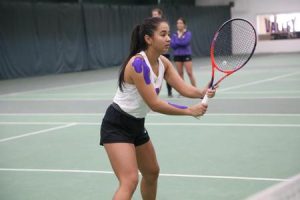
According to data from the NCAA, suicide is the second most common cause of death for college athletes after accidents. The suicide rate among college athletes has doubled from 7.6% to 15.3% over the past 20 years.
As a result, athletic departments at universities around the country, including UNI, are exploring ways to understand and support the struggles faced by student-athletes.
Striking a balance
“It’s hard to be perfect in everything,” Jaylie Hicklin said, a member of the women’s soccer team and the Northern Iowa Student Government director of athletic affairs.
The strive for perfection Hicklin referred to is all too real for many athletes trying to balance academics with their sport. With such busy schedules, it can be challenging to make time to do homework and study for exams.
“I’m friends with people in class that study up right before the test, and like two hours before they’re cramming and they’re doing a review — and I’m at practice,” she said.
“You have to prepare way in advance, and that’s the thing that some people don’t really like. Some athletes don’t have the time to do that or the drive, so that makes it kind of a really tough balance,” Hicklin added.
As Hicklin described, that balance between academics and athletics often fluctuates, one usually taking priority over the other.
“When both of those things aren’t really going your way, it’s just a mental battle of ‘Okay, where do I find my happiness in all of this?’” she said. “When one thing doesn’t go your way, how can you kind of balance and make the other side work out?”
Women’s basketball player Grace Boffeli echoed Hicklin’s perspective. Once conference basketball games start from January to March, Boffeli said she and her teammates often miss at least two days of class per week to either travel to road games or shoot around before home games.
“During those months I feel like I’m always just trying to catch up on schoolwork but then also performing on the basketball court. It’s a stressful time, but you kind of have to go with it. That’s the grind time,” she said.
“Sometimes it’s basketball, basketball, basketball, lifting,” Bofelli continued. “So it’s really important to find the balance of hanging out with friends and doing things you enjoy outside of the court, because my friends helped me so much through the ups and downs. I just think it’s really important for athletes to find a balance between their social life, their own time and then their sport.”
Being more than your sport
Though sports take up so much of an athlete’s life, several spoke of the importance of separating the sport from the person.
Boffeli said, “I feel like as an athlete, we are pressured by the outside world sometimes, like ‘You’re just a basketball player. We’ve seen you on the basketball court,’ but there’s other aspects. We’re human as well.”
“If you have one bad game, just drop it. It’s hard because we do have high expectations for ourselves, but just look at the positives, even through the bad,” she said.
Hicklin added, “I wish more athletes would choose to get involved in like normal clubs and stuff, because those people have broadened my experience so much and made my mental health better because I have a life outside of just athletics.”
“I think the more we can get people to be involved and find their worth in more than just their sport through other things on campus, that will help immensely,” she said.
Women’s basketball player Maya McDermott said that even though her sport takes up so much of her life, she has learned to prioritize other areas as well to improve her overall wellness.
“As a student athlete, you are absorbed by this sport that you play, but you can still have it all,” she said. “I’ll spend four hours a day basketball training and weightlifting, but you still have the other 20 to 21 hours in the day to do things in school or hang out with friends.”
“My motto is look good, feel good. So if I take care of myself, eat right, every once in a while go to get nails done with friends, that emotionally makes me feel really good, and then I’m able to produce in my sport,” McDermott said.
Resources on campus
Student-athletes have access to all of the mental health resources available to all UNI students, including the Counseling Center and TELUS teletherapy app. In addition, Shane Fuller is a part-time counselor specifically available for athletes to utilize at no additional cost. This position is contracted through a partnership between UNI Athletics and Cedar Valley Medical Specialists and has existed for almost two years.
In Sullivan’s role on the Student-Athlete Advisory Committee, she helps serve as a liaison between student-athletes and athletics administration. Her sophomore year, her main goal while on the committee was to establish mental health resources that cater to the unique experiences of student-athletes.
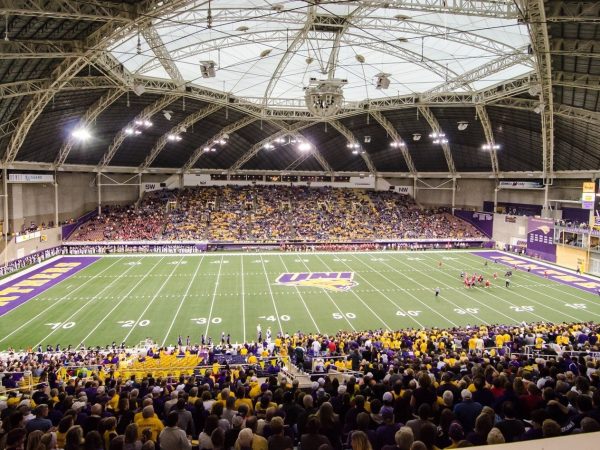
“A lot of other schools and campuses across the country, especially Division 1 level, had a mental health resource and we didn’t, so we made it our goal to do something about it,” Sullivan said. “And then we did get a part- time mental health counselor that any athlete can use completely free. I think that was a big accomplishment for us and one of the biggest accomplishments for me, leaving UNI knowing those athletes have a resource.”
Several athletes felt that adding this position has also increased the number of conversations about mental health in the past year and a half.
how they meet with Shane all the time and they say how beneficial it is for them, so it kind of just opens the door. It’s like, guys that are your peers are saying how valuable it is to them, so why would you not go test it out?”
In the future, students hope to see the counselor position increase to full-time or add more staff.
“I hope we can increase that resource for us because now Shane’s busy all the time,” Rahnavardi said. “If we have a mental health emergency, we can’t really meet with him tomorrow or today. So I mean, if we have another therapist that’s able to come in for us, we have twice as many options, so that way, if something does come up, we’re able to get in.”
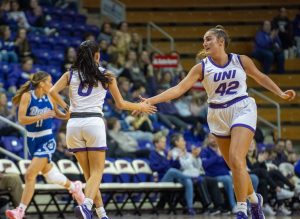
Andrea Greve Coello, associate athletics director for Student-Athlete Development and Inclusion, said that UNI Athletics has been working to increase support for students’ mental health over the past few years.
“We have been advocating for a full-time position within Athletics for years. Securing the part-time mental health counselor has been a huge step in the right direction for our department, and has been a positive experience for our student-athletes,” she said.
Other more recently added resources include offering VAR Training. VAR Training is a program created by Active Minds which provides steps to help others deal with everyday struggles. Beginning in fall 2023, the training was offered as part of the freshman experience course all athletes go through.
Greve Coello said that UNI Athletics also makes referrals to on-campus and community resources as needed.
Last year, students also established a chapter of Morgan’s Message on campus, a national organization devoted to breaking the stigma around mental health for student-athletes.
For resources that could further support students, some athletes also mentioned the addition of a sports psychologist to the staff. While a counselor focuses more on an athlete’s personal or life struggles, a sports psychologist specifically addresses an athlete’s performance and typically has a greater understanding of an athlete’s lifestyle. Others also mentioned a dietician specifically for athletics to help athletes balance food and avoid disordered eating.
Bringing Awareness
Despite having some resources in place, some athletes mentioned that one of the biggest obstacles is raising awareness and making people feel comfortable to ask for help. A survey released by the NCAA in May 2022 revealed that while two-thirds of college athletes reported knowing where to go on campus for mental health concerns, only 47% expressed that they would feel comfortable seeking support from a mental health provider on campus.
“Going to get help in athletics is tough because you have people who are super competitive, who don’t want to really show any weakness,” Hicklin said. “People don’t want to let anyone know that there is that side of them that does need help, we all want to do it ourselves. That’s just kind of how everyone is with that competitive edge and drive.”
Senior swimmer Taylor Short added, “The nature of athletics is built on mental toughness and determination. You don’t quit, you don’t stop. So I think, while those are all important qualities, and I think can be good qualities to have for athletes especially, that’s what bites you in the butt sometimes.”
“We all go to practice when we don’t feel good. That is, I think, where mental health in athletics can be challenging,” she said. “You kind of shove it down and you show up, which isn’t necessarily bad, but it can be difficult when it gets to the point where you aren’t processing or dealing with things you might need to and so you’re kind of sacrificing your mental health for the sake of your sport for so many reasons.”
“You don’t want to disappoint your teammates. You don’t want to disappoint your coach. You don’t want to make your team look bad. You don’t want to miss class. There’s so many factors that go into it,” Short said.
In looking at NCAA data, male athletes are at a much higher risk for suicide than female. From 2002 to 2022, 77% of college athlete suicides were male, something Rahnavardi said is important for future discussions of mental health.
“I think, just building awareness that at least for male athletes, it’s okay to have mental health issues. You don’t have to be the tough guy and take on that front all the time,” he said.
McDermott believes in the importance of student-athletes using the platforms they have from their sports.
“I think more student athletes need to kind of put that out there in support because you have that platform and people are paying attention to you even when you think they aren’t,” she said. “It doesn’t matter how many followers I have, but that’s going to hit certain targets with people.”
Though athletes of different sports often have different schedules and different specific experiences, Short said that mental health resources should be an area of unity.
“No matter if the school is D1 or D3, men’s sports, women’s sports, intramural sports, it doesn’t even matter what it is. Everyone, I think, should be aware of and have access to mental health resources, period,” she said.
“Even among the toughest of athletes or the best athletes, the best students, the best people, it doesn’t matter. Mental health doesn’t really discriminate,” she said. “I think it’s important for everyone to be aware of how they can get help and how they can help others.”
Hicklin added that though student-athletes may be under circumstances that not every student has to deal with, it’s important for campus as a whole to work together on these issues.
“I think the mental health struggles that normal students face, we face the same ones,” she said.
“The more we fix our student body’s problems, the more we’re going to be able to help our athletes too.”


